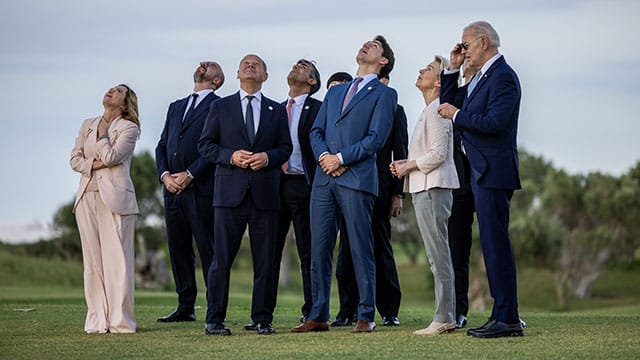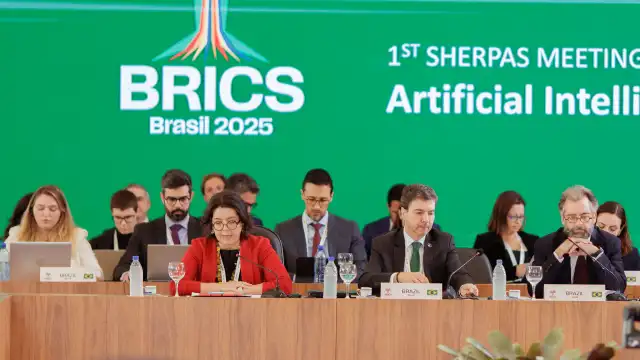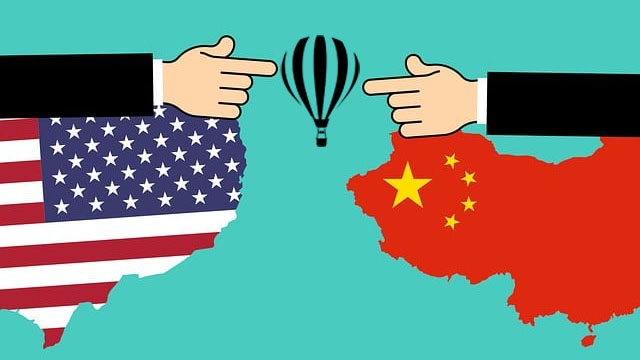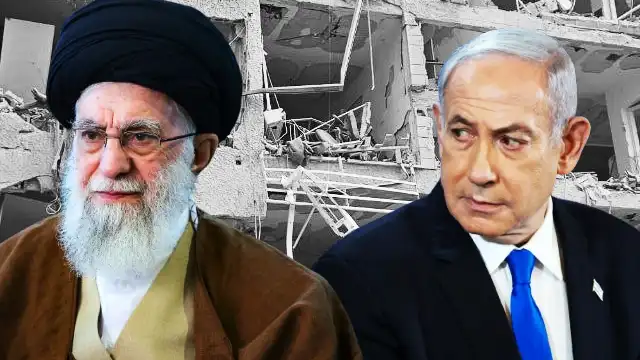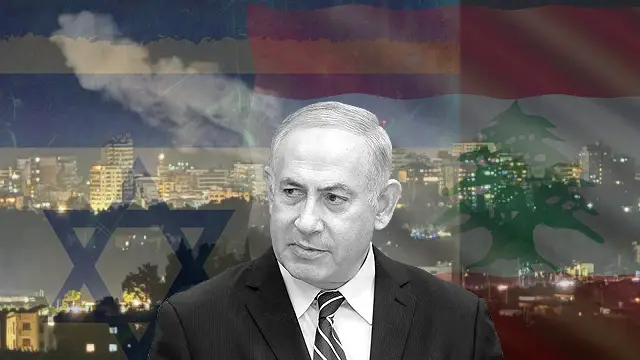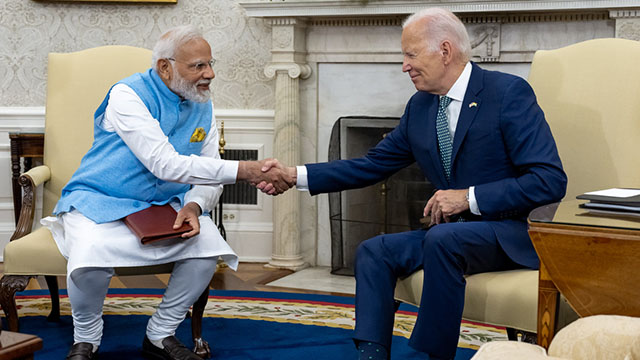The recent G-7 Summit in Italy did not meet global expectations for peace and development, with leaders focusing heavily on current conflicts and polarisation.
It’s paradoxical that while the G-7 Summit in Italy espouses “democratic principles and free societies, universal human rights, social progress, and respect for multilateralism and the rule of law,” the actions of the leaders often contradict these values.
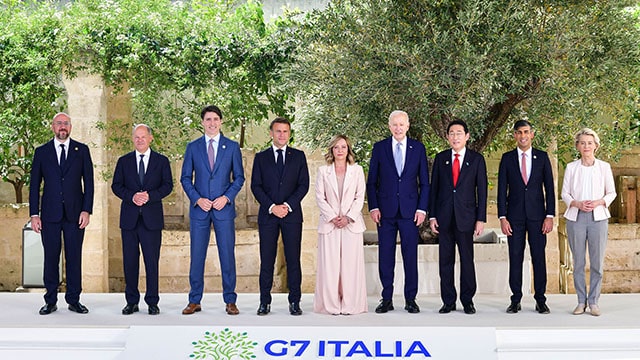
Ukraine at G-7 Summit in Italy
The Apulia G7 Leaders’ Communiqué focuses extensively on Ukraine, despite significant challenges in its ongoing conflict with Russia.
Despite the G-7 Summit leaders professing faith in the rule of law and democratic principles, they continue to implement unilateral sanctions against Russia, which contradict those standpoints.
In reaffirming their sanction threats, the West inadvertently acknowledged the limited impact of such measures on Russia’s military capabilities, which means a limited impact on its economy as well.
“We are committed to raising the costs of Russia’s war by building on the comprehensive package of sanctions and economic measures already in place. Though our measures have had a significant impact on Russia’s ability to build its war machine and to fund its invasion, its military is still posing a threat not just to Ukraine but also to international security,” the Communiqué underscores.
The G-7 block’s leaders—from the US, the UK, France, Germany, Italy, Canada and Japan—joined by the European Union, World Bank and International Monetary Fund (IMF) heads, declared that they would continue to fund Ukraine in its war against Russia and will provide it with a $50bn additional loan by the end of this year.
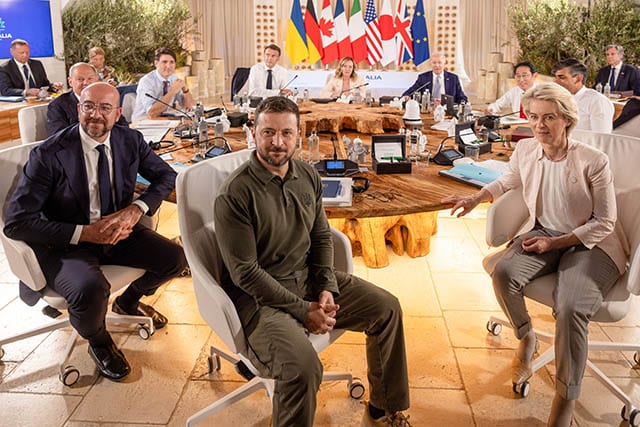
They plan to disburse this financing through multiple channels to support Ukraine’s military, budget, and reconstruction needs, according to the Communiqué.
“We are increasing our production and delivery capabilities to assist its self-defense. We also support efforts to assist Ukraine modernizing its armed forces and strengthening its own defense industry. We express our resolve to bolster Ukraine’s air defense capabilities to save lives and protect critical infrastructure (sic),” the Communiqué says.
At the same time, the Communiqué mentions that it won’t allow Russia access to its overseas assets that have been frozen by the West until it ends the war.
Moreover, they are claiming compensation from Russia worth $486bn for the special military operations in Ukraine.
At the same time they state, “We also condemn the seizures of foreign companies and call on Russia to reverse these measures and seek acceptable solutions with the companies targeted by them.”
This suggests that while the West sanctions Russia and its businesses—despite the St Petersburg International Economic Forum attracting participation from 139 countries—Russia is expected to allow Western businesses to operate freely within its territory. A demand that comes from a sense of entitlement.
While Western leaders at the G-7 Summit avoided the topic of peace in Ukraine, Russian President Vladimir Putin reiterated Moscow’s proposal to end the conflict.
“I want to reiterate: Russia did not start the war. It was the Kiev regime that initiated hostilities, following the declaration of independence by residents of certain parts of Ukraine in accordance with international law, and continues to do so,” Mr Putin alleged while addressing his colleagues at the Ministry of Foreign Affairs (MID) on the conflict.
He also declined to recognise Volodymyr Zelenskyy, who is receiving immense funding from the West as the legitimate representative of the Ukrainian people. “The presidential term of the previously elected head of Ukraine has expired along with his legitimacy, which cannot be reinstated by any tricks…,” the Russian President highlighted.
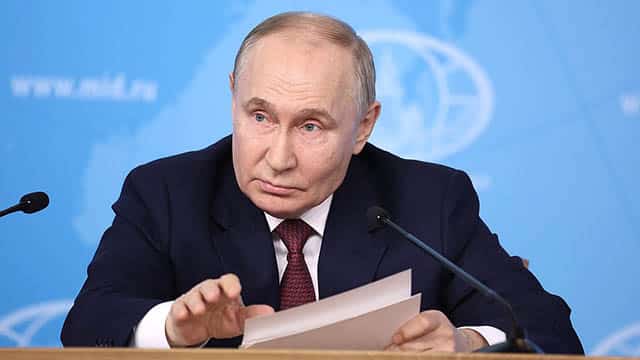
“The Ukrainian troops must be completely withdrawn from the Donetsk and Lugansk people’s republics and Kherson and Zaporozhye regions,” the president underscored as a pre-condition for peace.
“As soon as Kiev declares that it is ready to make this decision and begin a real withdrawal of troops from these regions, and also officially notifies that it abandons its plans to join NATO, our side will follow an order to cease fire and start negotiations will be issued by us that very moment. I repeat – we will do this expeditiously,” Mr Putin claimed.
However, the West ignored Mr Putin’s call and opted to provide further financial support to Ukraine, potentially increasing the country’s debt burden amid ongoing conflict.
By disregarding Mr Putin’s peace proposal, the Ukrainian side may be seen as taking a counterproductive approach, which has the potential to prolong the conflict and the sufferings of the civilians.
The hypocrisy over Gaza
While the Communiqué mentions Ukraine 57 times, it has mentioned Gaza nine times.
This is how the West treats Gaza where Israel’s one-sided attacks killed over 37,202 civilians until June 12, according to the Ministry of Health of Palestine.
Over 32% of these victims, 7,797, are children. Around 84,932 civilians have been injured in this eight-month-long aggression.
Even though Israel has been accused of carrying out genocide by prosecutors at the International Criminal Court (ICC) and the International Court of Justice (ICJ), and while Tel Aviv’s forces haven’t even spared United Nations workers and vehicles, attacked and destroyed hospitals and relief camps, pushed the civilians of Gaza towards starvation and diseases by cutting off water, food, fuel and electricity supply, the Communiqué has showered praises on Israel.
Unlike Russia, which has been mentioned 61 times in the Communiqué, Israel has been mentioned 14 times only.
“We express our full solidarity and support to Israel and its people and reaffirm our unwavering commitment towards its security. In exercising its right to defend itself, Israel must fully comply with its obligations under international law in all circumstances, including international humanitarian law,” the harshest criticism the Communiqué has for Israel.
While Russia’s right to self-defence is questioned, Israel is fully supported in its defensive measures, despite accusations of forcible evictions and violence against Palestinian civilians.
The G-7 Summit carefully puts the onus on “both sides”, although it is primarily Israeli forces involved in the violence against civilians.
“We urge all parties to facilitate rapid and unimpeded passage of humanitarian relief for civilians in need, in particular women and children. Securing full, rapid, safe, and unhindered humanitarian access in all its forms, consistent with international humanitarian law, and through all relevant land crossing points, including the Rafah crossing, through maritime delivery routes, including through Ashdod Port, and throughout all of Gaza remains an absolute priority,” the Communiqué states even though the Hamas or the Palestinian side have no control over these.
Moreover, on the question of recognising the independent Palestinian state, the West remained elusive and said, “We note that mutual recognition, to include the recognition of a Palestinian state, at the appropriate time, would be a crucial component of that political process,” the leaders said in the Communiqué.
The G-7 Summit’s stance suggests it will continue supporting current policies in Ukraine and Palestine, which have significant humanitarian implications.
The Red Sea issue
While the Yemeni Houthi rebels have taken a pro-active stance in favour of the people of Gaza and taken affirmative action against Israel, by obstructing ships linked to it from passing through the Gulf of Aden and Bab al-Mandab Strait.
Although the US and UK have engaged militarily in Yemen, the G-7 Communiqué justifies their actions as essential for protecting global trade routes.
“The EU maritime operation Aspides and the U.S.-led operation Prosperity Guardian play an essential role to protect crucial shipping lanes that are fundamental for global trade (sic),” the Communiqué says.
Despite their joint efforts and attacks on Yemen didn’t bring them the expected results, which is why the Communiqué laments saying, “The continuing Houthi attacks in the Red Sea risk destabilizing the region, stopping freedom of navigation and trade flows and endangering the UN-led roadmap towards peace in Yemen. We call on the Houthis to comply with their obligations under international humanitarian law and cease their attacks in the Red Sea, Gulf of Aden and surrounding waters (sic).”
The G-7 Summit’s appeal to the Houthis indicates that the US and the UK’s operation Prosperity Guardian has been facing challenges and can’t attain its desired goals.
Countering Iran
While the G-7 Summit in Italy wilfully ignored Israel’s war crimes and gross violations of the human rights of the Palestinian people, it came after Iran for asserting its sovereignty and challenging Israel in the region.
“We demand that Iran cease its malicious activities and destabilizing actions in the Middle East and we stand ready to adopt further sanctions or take other measures in response to further destabilizing initiatives (sic),” the Communiqué said.
What are the malicious activities Iran has been accused of?
It’s accused of supplying ballistic missiles and other munitions to Russia.
“We call on Iran to stop assisting Russia’s war in Ukraine and not to transfer ballistic missiles and related technology, as this would represent a substantive material escalation and a direct threat to European security (sic),” the Communiqué said.
The accusation that Iran is supplying Russia with missiles indicates that Western sanctions have not hindered Iran’s technological advancements.
“We reiterate our firm condemnation of Iran’s attack against Israel of 13-14 April, which marked an unacceptable escalation, and we reaffirm our commitment towards Israel’s security,” the Communiqué mentioned. However, it didn’t mention why Iran was forced to take such a step against Israel.
In April, Israel attacked Syria, violating its right to sovereignty and security and bombed the consular section of the Iranian embassy in Damascus, killing several top military leaders of Iran.
It’s this violation of its sovereignty that forced Iran to act determinedly and launch an attack on Israel on April 14th.
As the US-led West’s sanctions against Russia and Iran proved ineffective, the G-7 Summit shifted focus towards China, balancing pleas for cooperation with sharp criticism.
G-7 Summit’s duality on China
Unlike Russia or Iran, the G-7 Summit’s Communiqué couldn’t directly threaten China but called for cooperation and asked it to support the West, which has no inhibitions in restricting China’s access to their markets and denying China a fair share of markets and raw materials according to the World Trade Organization’s (WTO) charter.
“We seek constructive and stable relations with China and recognize the importance of direct and candid engagement to express concerns and manage differences. We act in our national interest. Given China’s role in the international community, cooperation is necessary to address global challenges, and we continue to engage in areas of common interest,” the Communiqué said.
Although the West, under the aegis of the US, is accused of creating roadblocks for China, the tonality of the G-7 Summit’s leaders shows that they don’t want to irk China considering the pivotal role it plays in the world’s commodity supply chain.
On the one hand, they need China’s manufacturing, technology and innovation, and on the other, they are trying to build alternative supply chains to bypass China.
It’s a reason that the US is heightening its activities in the “Indo-Pacific” war theatre and working on the China+ model to develop more offshore centres as hubs of manufacturing and crucial supply chains.
“We are not decoupling or turning inwards. We are de-risking and diversifying supply chains where necessary and appropriate, and fostering resilience to economic coercion. We further call on China to refrain from adopting export control measures, particularly on critical minerals, that could lead to significant global supply chain disruptions,” the Communiqué stated.
“With these concerns in mind, together with partners, we will invest in building our and their respective industrial capacities, promote diversified and resilient supply chains, and reduce critical dependencies and vulnerabilities,” the Communiqué further said.
It highlights the fact that the West is devoid of a crucial industrial base now and to ensure it ends its dependency on China it needs to invest heavily in the China+ system, including countries like Vietnam, Indonesia, the Philippines and India, which lag vis-à-vis China in capacity and technological progress.
Where is the West headed?
The G-7 Summit in Italy highlighted the West’s efforts to maintain influence amid the global south’s push for multipolarity.
The G-7 members’ endeavours to woo Africa with lucrative baits show that they are frightened by the close ties forged between the Russia-China bloc on the one hand and Africa on the other.
The continent’s growing proximity to institutions like BRICS and the recent membership of the African Union in the G20+ at New Delhi shows that African countries are trying to assert their independent role on the world stage.
The desperation with which the G-7 is wooing Africa, and the way it is threatening Russia, Iran, the Houthis and China clearly show that the West has been suffering geopolitical setbacks in the global south, the Eurasian region and Indo-Pacific, despite its manoeuvres.
In this context, the G-7 Summit in Italy has shown that the end of the G-7’s domination over the world’s political economy is close as multipolarity has acquired currency due to the new developments spearheaded by China, Russia and others.
Tanmoy Ibrahim is a journalist who writes extensively on geopolitics and political economy. During his two-decade-long career, he has written extensively on the economic aspects behind the rise of the ultra-right forces and communalism in India. A life-long student of the dynamic praxis of geopolitics, he emphasises the need for a multipolar world with multilateral ties for a peaceful future for all.

